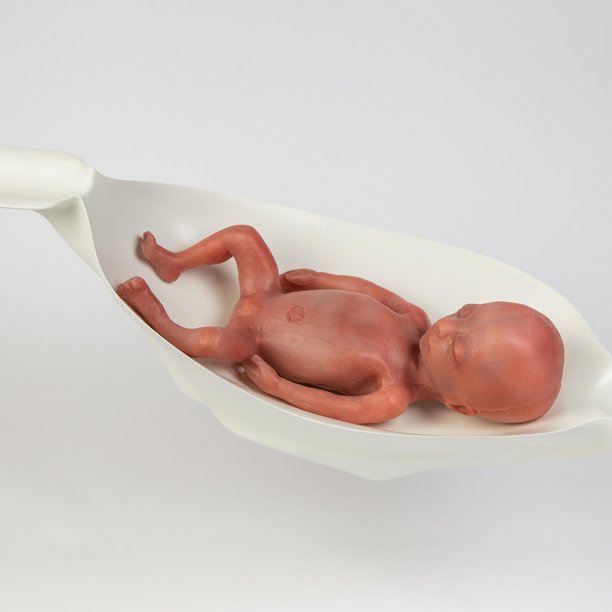Our Research Labs
At the Departement of Industrial Design researchers and students can use several labs to support their research and educational activities. We offer Generic Make-Labs, Specific Make-Labs and Research Labs.
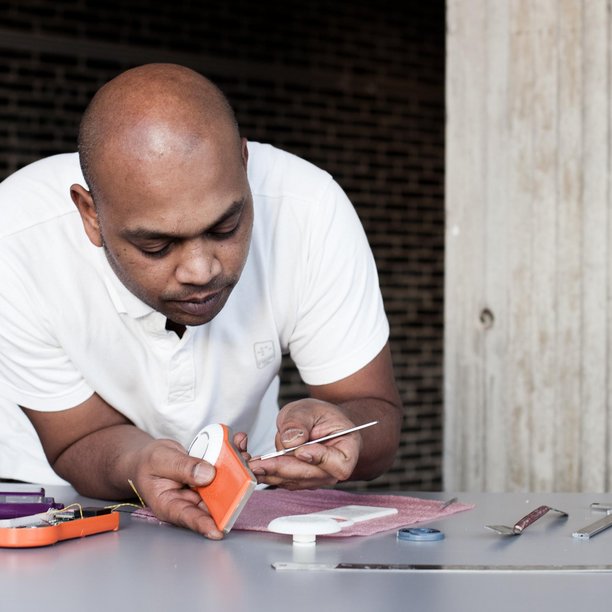
/d.search lab
The /d.search lab is dedicated to the realization of high-quality prototypes for master students and researchers of the ID department. The lab facilities are also used for the support of innovative projects within education that deserve extra attention to come to a higher level to attract industry and inform and inspire research. Dedicated multi-disciplinary support staff takes care of the proper operation of the equipment and the maintenance and extension of the facilities and related support.
Facilities in /d.search lab
- Five electronic workplaces among which a dedicated SMD (Surface-Mounted Device) work station and an SMD oven and a supply of commonly used electronics components
- A few general workplaces for e.g. cardboard modeling and assembling prototypes
- Laser cutter Trotec Speedy 300™
- Small 3D printers (Ultimaker 2)
- State-of-the-art professional 3D printer (Objet Connex 350)
- 3D milling machine for plastics and wood (located in Matrix)
- Facilities for silicone and resin casting.
Contact
If you want to use these facilities contact one of the staff members. Especially for 3D printing contact Chet Bangaru or Jasper Sterk ) in due time.
E-lab
The E-lab is meant for education; it facilitates students who want to build electronic circuits and provides the first level of electronics support for bachelor students. The E-lab is also used for some electives and workshops on electronics.
The E-lab has 12 working places, which can be used by ID students without prior reservation. Each working place is equipped with measuring equipment like an oscilloscope, function generator, 2 power supplies, and a soldering iron with fume extraction. Under the name of E-atelier, student assistants from the department of Electrical Engineering together with a senior staff member, assist ID students. The E-atelier also has a website with electronics information.
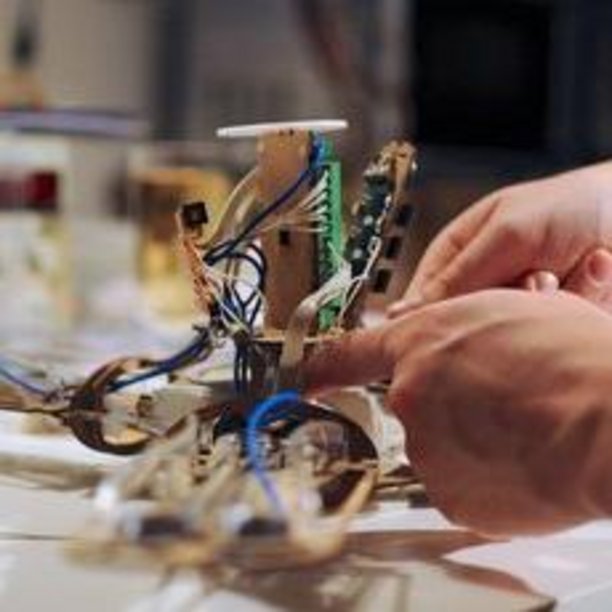
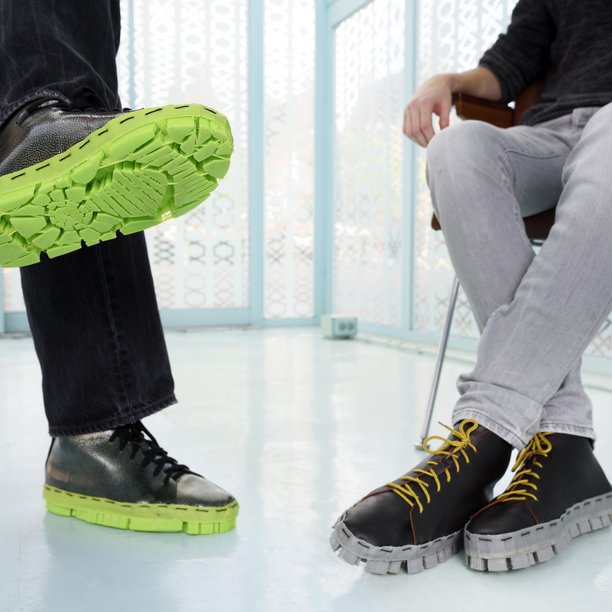
Rapid prototyping lab
The Rapid Prototyping Lab is equipped with:
- Laser cutter Trotec Speedy 300™(click for usage instructions). Our laser cutter is mostly used for cutting and engraving sheets of MDF, plywood, or acrylic and work on textiles.
- Small 3D printers (Ultimaker 2)
- State-of-the-art professional 3D printer (Objet Connex 350). The Connex 350 is used for printing of (final) prototypes and molds as well as for explorations using its capability of printing materials with varying mechanical properties in one print job.
Contact
If you want to use these facilities contact one of the staff members. Especially for 3D printing contact Chet Bangaru or Jasper Sterk ) in due time.
Interactive Material Lab
The Interactive Material Lab is a newly established workshop for students and researchers to design, construct and produce prototypes with functional materials and composites. More possibilities will be explored in the area of shape-changing interfaces, thermo- & electrical actuators, soft-robotics, innovative materials for 3D printer, etc.

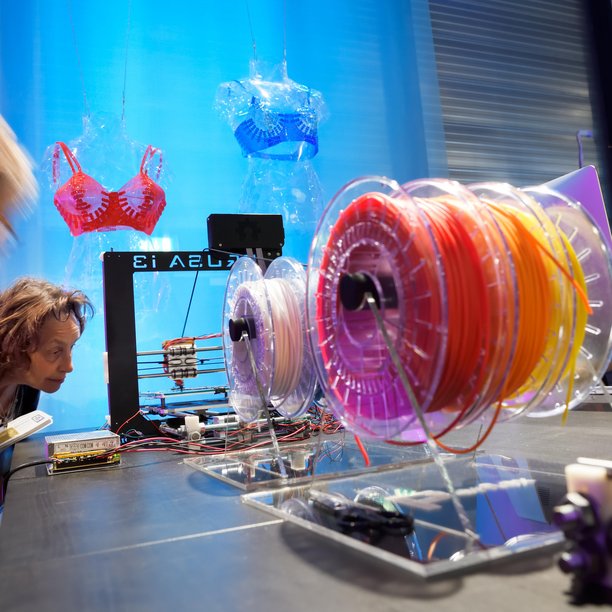
Wearable Senses Lab
In the Wearable Senses Lab you can experiment with soft sensors, e-textiles and algorithmic on-body systems. The lab includes prototyping and manufacturing capabilities for the creation of apparel, accessories, and jewelry that integrate technology on an inherent level. Beyond industrial sewing, over-lock and heat press machines the Wearable Senses Lab is equipped with knitting, weaving, tufting, vinyl cutting, 3D-printing and embroidery machines. All these machines can only be used by students who have attended an introductory instruction at the beginning of the semester.
Biofeedback Lab
The Biofeedback Lab allows gaining awareness of the physiological functions in the human body using sensors that provide information on the activity of these functions. The goal is ultimately to manipulate these functions at will to improve health, well-being and performance. The infrastructure of the lab provides the equipment to perform a wide variety of different measurements on the human body.
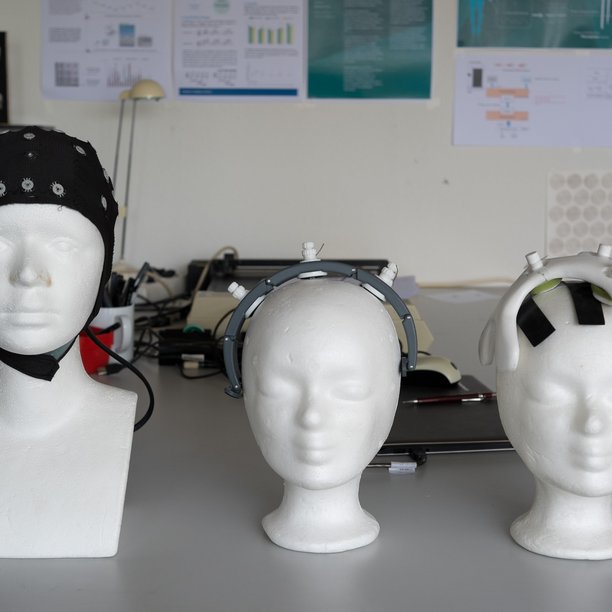
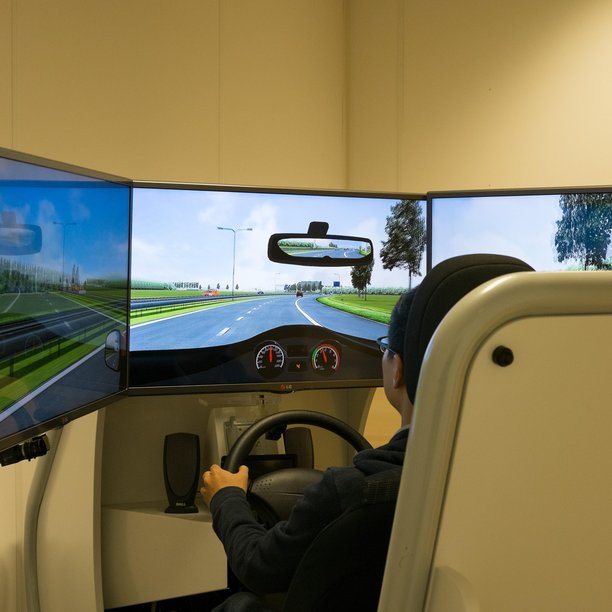
Car Simulator
The Car Simulator, also called Drive Master Driving Simulator, provides a mobile Virtual Reality environment for creating a virtual driving experience. It consists of a driving simulator and a control station and is equipped with eye tracking sensors and force feedback steering wheel. Scenarios can be created meeting specific experimental requirements, and different kinds of data can be logged and extracted in real time.
Light Lab
The Light lab is a state of the art lab to develop interactive lighting systems. It has all necessary facilities and equipment to conduct light experiments, explore installations and effects, and conduct user research. The Light lab supports experiments at different scales (small box, large box, room and theatre level), with adequate light sources and control equipment (LED, DMX, Arduino) allowing you to implement your ideas quickly to support rapid prototyping for an iterative design process. The Light lab also involves Living lab facilities, in particular an office and a breakout space equipped with connected lighting, allowing to explore and study interfaces and effects of light in a realistic context.
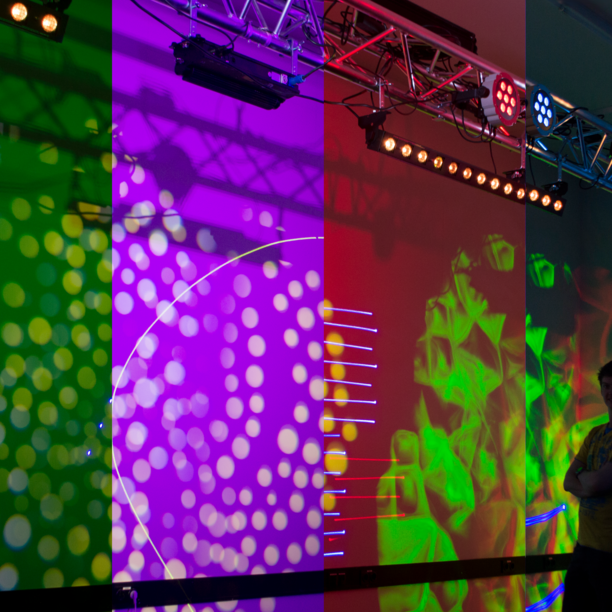
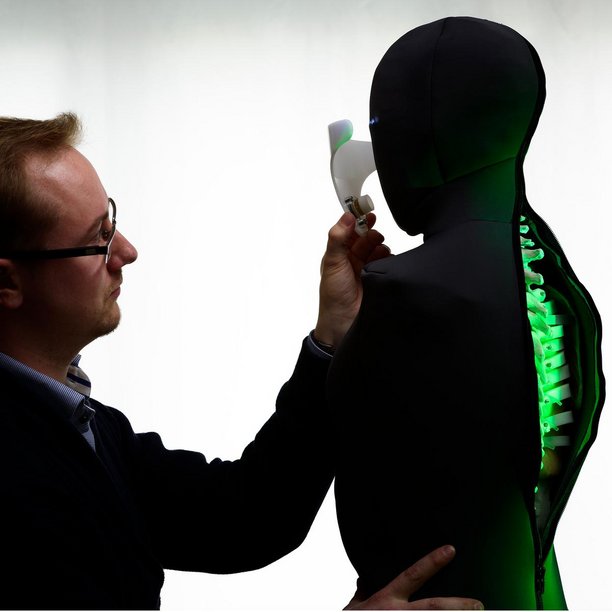
Medical Simulation Lab
The Medical Simulation Lab provides space to develop equipment (simulators) that can aid in the training process of medical professionals.
Neonatal Lab
The Neonatal Lab provides space to develop and test designs to be used in a neonatal care environment. The space provides a context (medical equipment, incubator) that can otherwise only be found in a hospital.
